Flint Chocolate
Creative Copy // Manifesto
Founded by Tania Lincoln, Flint Chocolate celebrates ritual, the Earth and those who work the land—crafted in Tāmaki Makaurau from certified organic and ethically sourced ingredients. Bean-to-bar products can be seen as elitist. My role was to deliver communications that bridge making the brand’s products desirable without diminishing the untold narrative of slavery and unethical sourcing issues that plague the industry. This brief involved creating a universe that people can feel a part of or want to feel part of.
View writing samplesManifesto.
Flint Chocolate as a concept is passionately rooted in sustainability, ethics and craft. All handmade in a small factory in Auckland, Flint Chocolate is made from bean to bar, preferring the slower, more traditional stone-grinding method. We are passionate about making delicious chocolate from quality, sustainable ingredients with minimal planetary impact.
In envisaging a world where chocolate is considered a health move, we hope to inspire a shift in the perception of chocolate and how its consumed. Quality cacao that has been thoughtfully grown and minimally processed has many benefits—taking care of yourself and the environment. Each single-origin cacao has a diverse ecosystem of climate, soils, and human processes, contributing to intriguing flavour profiles.
Tag line samples.
Cacao chemistry. Feed your bliss.
Your food, your medicine and your pleasure all at the same time.
Each square reclaims dessert without refined sugars, is entirely plant-based, and champions the powers of nature.
Ecoware
Featured Article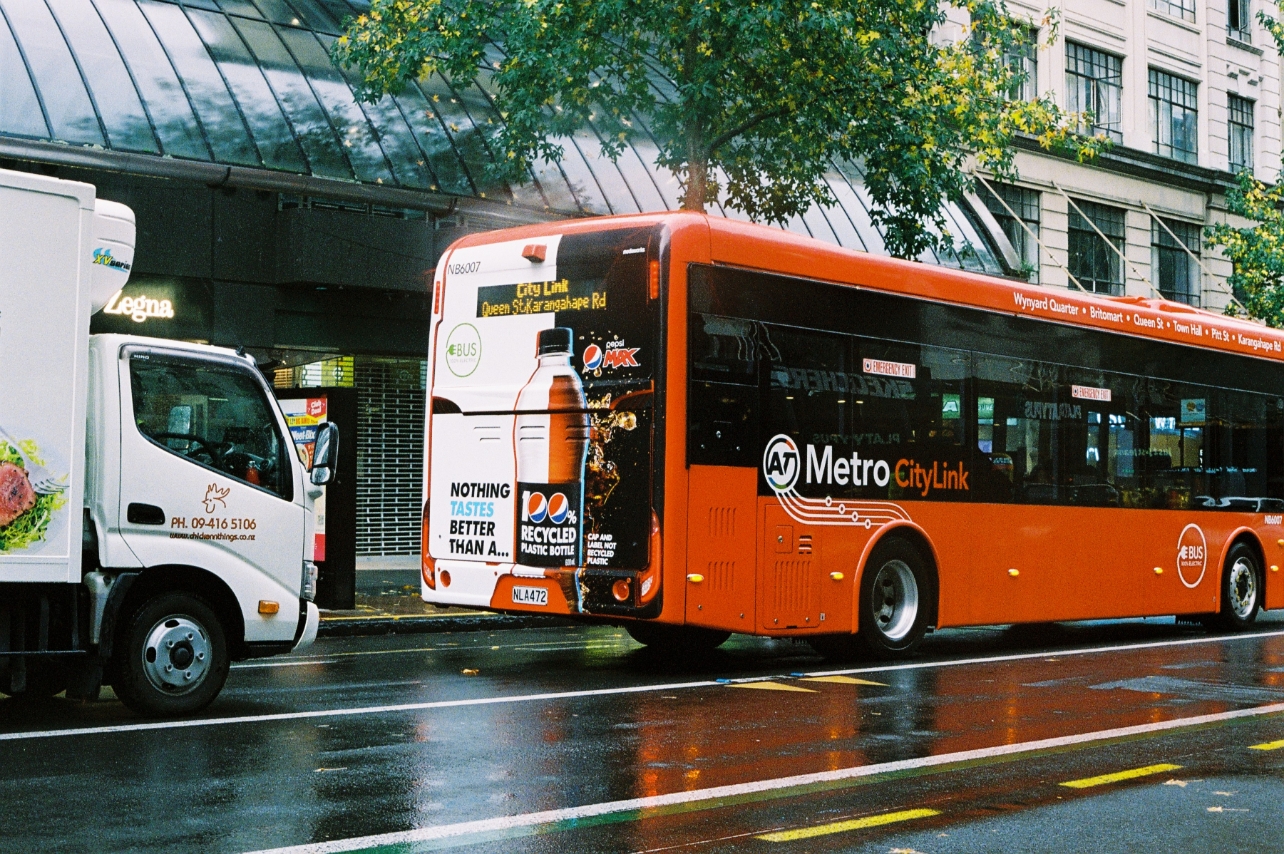
A recent blog post for Ecoware, ‘plastic recycling was never going to work, and the industry knew it, is an investigation into the history of plastics and the relationship between advertising and culture. This article asks the reader to consider the fossil fuel companies’ role in creating a single-use culture and why we might not see the change, we would like despite public pressures.
Read on Ecoware’s websiteLagom
Editorial Copy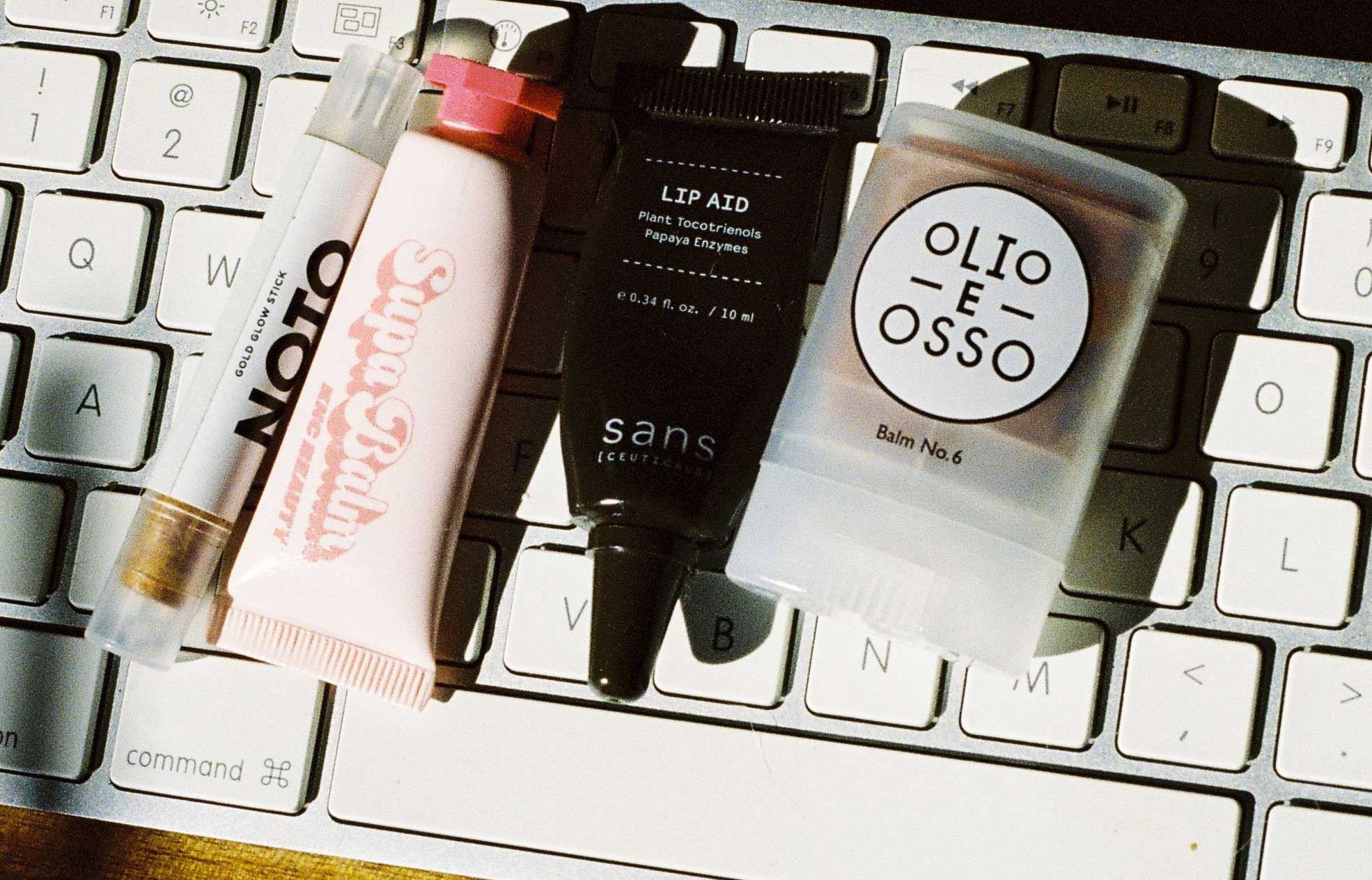
Throughout my career, I’ve been guided by a passion for demonstrating how purpose and profitability coexist to advance and enhance human, environmental, and business progress. Lagom was borne out of interests and work in photography and design, merging an academic background in sciences and a desire to communicate what is beneficial for human and planetary health. I write, edit, and publish 2-3 stories and articles across various themes each month.
Lagom websiteEcoware
Creative Copy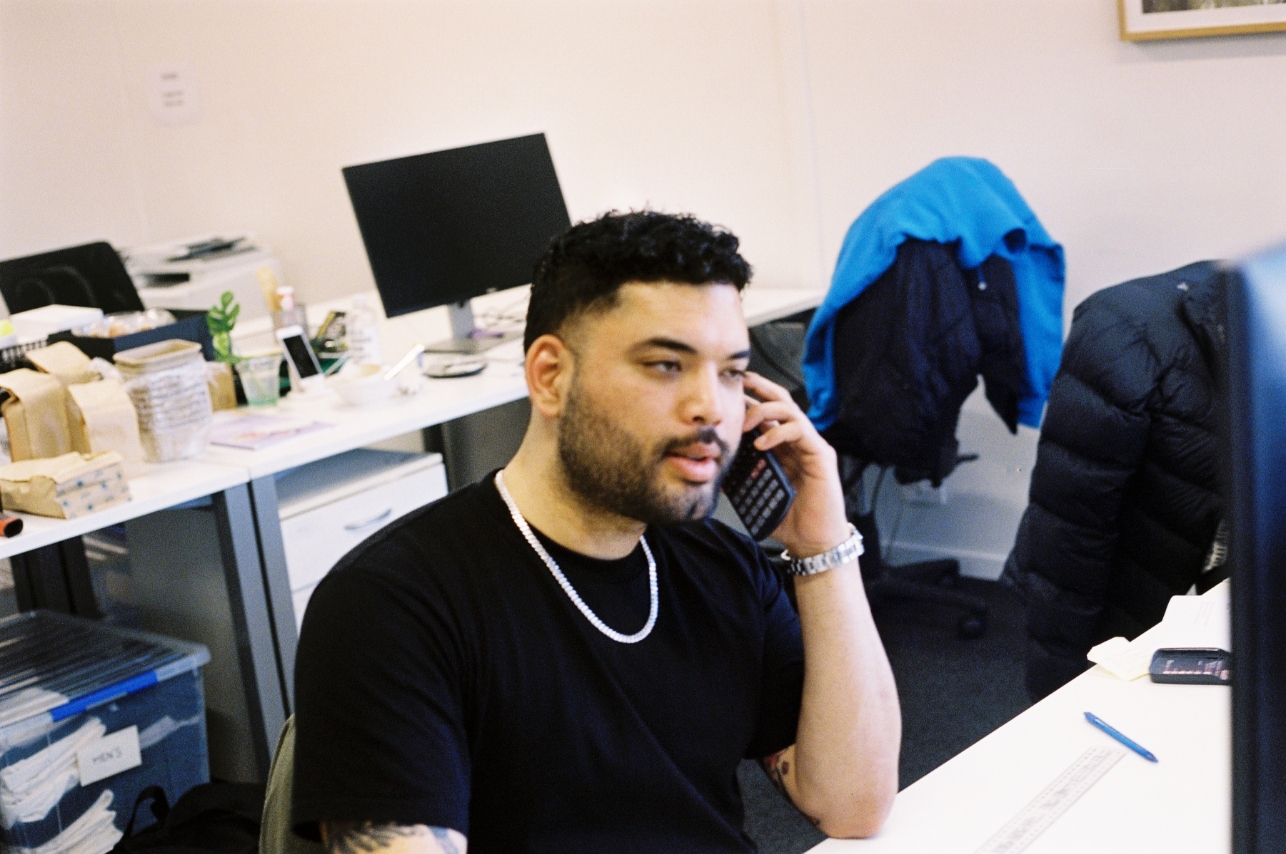
Ecoware’s products, materials and environmental impacts must be told to B2B customers and the public in a friendly, effective, reliable, and ecological way. Much of this writing involves desk research. My appreciation of academia shapes the circular economy narrative for Ecoware, which contributes to the brand presence and reputation, crafting stories and messages to reach new audiences and improve understanding.
View writing samplesSocial media samples.
The government is set to phase out hard-to-recycle and single-use plastics starting this year. But is our nation's waste infrastructure and consolidated enterprises ready too?
More governments are pursuing regulations that encourage a shift toward compostable materials, where waste and pollution are designed out, products and materials remain in use, and natural systems are regenerated.
We can replace plastics used today with bio-plastics. However, as composting infrastructure is still being developed, it remains likely, compostable packaging may continue being landfilled en masse. Elsewhere globally, we see examples of where composting works at a large scale. We recognise and celebrate the pioneers locally, driving the current system toward a more sustainable one.
Diverting food waste from landfill is a priority for reducing our carbon emissions. So why are we not composting food scraps with compostable packaging?
Swipe to learn more.
Head to our bio to read the full story.
#climatecrisis #climatechange #plastic #plasticpollution #plasticwaste
While electrified vehicle sales have grown at 94% since 2021, and sustainable technologies are on the cusp of revolutionising aviation, circularity is the future—and it’s the key to solving climate change.
According to climateactiontracker.org, our overall rating remains ‘highly insufficient as a nation. It remains clear that policy change is required if we are to meet our goal of net-zero emissions by 2050.
The government will release their climate plan this May, and this October, the phase-out of hard-to-recycle plastics commences. We can’t stop takeaways, but we can reduce their impact, creating better outcomes through materials, design and circular principles that lead the way towards a better future.
Since over 99% of plastics are made from fossil fuels, banning these items is a move in the right direction. Reducing waste to landfill AND reducing food waste sent to landfill is critical in reducing emissions. So if you are yet to, have your say on the Transforming Recycling consultation. The quick submission link is below.
Progress is too slow. But we still have hope. How will you be an activist? ✊ Share in the comments below.
#circulareconomy #plasticpollution #climatecrisis
Product description sample #1.
Page title: Double Wall EcoCup - Kraft
Description: Ecoware hot double-wall kraft coffee cups are made of 100% renewable resources, sustainable and responsibly sourced paper and a plant-made Ingeo™ bioplastic lining. Premium quality, our double-wall coffee cups are leak-proof while offering exceptional insulation properties, with an extra paper layer compared to our single-wall EcoCups. A range of sizes are available, all made from plants and certified industrially compostable. Cup sizes measured to brim capacity.
Product description sample #2.
Page title: Sugarcane Folding Food Box
Description: Ecoware folding boxes are made of sugarcane pulp, a 100% renewable resource and a tree-free sustainable alternative to hard-to-recycle plastic food containers. Designed for a secure fit and ease of folding—and busy environments, tight-knit fibres make these one-piece folding boxes suitable for hot and cold foods.
These boxes are microwave friendly and freezer-friendly up to -20°C. Certified for home and commercial compost, the Ecoware sugarcane tableware range is designed to help tackle the vast amounts of plastic packaging used in takeaways, offering a circular alternative to cheap takeaway containers made from fossil fuels—minimising the environmental impact of convenience culture.
EcoRoll
Creative Copy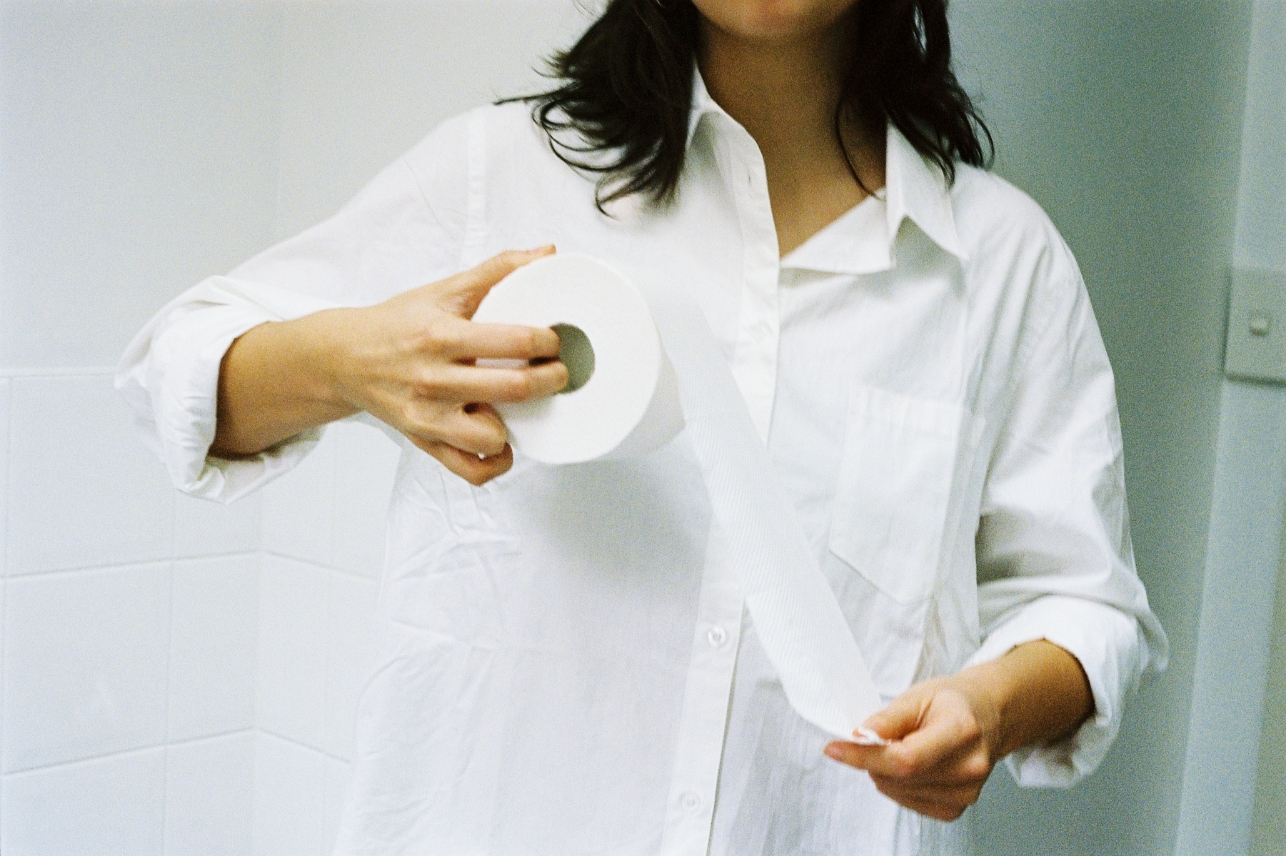
I provide direction for EcoRoll, an environmentally-friendly toilet paper brand, utilising language that seeks to change perception and entice audiences to purchase/buy into EcoRoll, which is toilet paper made from 100% FSC®-certified bamboo, not trees. Marketing communications needed to be awakening, informative, and emotional at the same time, with touchpoints that highlight the unique selling points of the brand in a distinctly shareable way.
View writing samplesBlog post sample.
How many trees to make a roll of toilet paper?
Hard to say. The key figure quoted on the Internet is the WWF one, 270,000 trees globally, or equivalent — to manufacture our demand for toilet tissue.
“Every day, about 270,000 trees are effectively flushed down the toilet or end up as garbage around the world. Such a use of the forests is both wasteful and unnecessary,” said Duncan Pollard, Head of WWF's European Forest Programme. “Manufacturers must use more recycled fibres in their tissue products, as this means fewer trees will be cut down.”
The above references Forests flushed down the toilet, a report commissioned by WWF in 2005. There have been limited studies published on the subject since. The National Defence Council published the only other notable piece of work in 2019, The Issue with Tissue, in collaboration with stand.earth, a report highlighting the relationship between major United States toilet tissue manufacturers and the destruction of the Canadian Boreal forest — one of Earth's most ecologically significant forests.
What is the significance of the Boreal forest in the context of Aotearoa?
We’ve changed our environment, and these changes affect communities globally that have been forced — or will be forced to adapt to survive. Aotearoa is an island Nation — some coastal areas of which are more vulnerable than others. The sea level has risen steadily over the last century, but in the previous few decades, that rate has nearly doubled, primarily due to the influence of climate change.
Greenhouse gases trap heat within our atmosphere, contributing to the melting of land-based glaciers and the thermal expansion of ocean water, both of which lead to rising ocean levels. According to the National Oceanic and Atmospheric Administration, until 1993, the global sea level was rising at a rate of 1.7 millimetres per year. Now, that rate is 3.1 millimetres per year. And we are not immune to the impacts, as shown by the NZ SeaRise: Te Tai Pari O Aotearoa programme.
Globally, toilet paper companies have typically used cute dogs and cuddly bears to distract us from the reality of producing tissue products. The Issue with Tissue revealed the worst tissue brands driving the degradation of irreplaceable boreal forests through their continued use of virgin forest fibre to make throwaway sanitary products. NRDC published 2.0 in 2020, noting shifts in the industry, including a brand scorecard for people to assess major brands’ sustainability credentials. Both reports and the scorecards can be directly accessed via this NRDC link.
The report found that big brands’ refusal to switch to sustainable alternative materials in toilet paper has resulted in devastating impacts on forests and the climate. Covering roughly one-tenth of the Earth’s landmass, the Boreal forest represents the planet’s single largest biome and makes up 30% of the globe’s forest cover. About 28 million acres of Canadian boreal forest have been cut down since 1996. Virgin pulp, the critical ingredient in toilet paper, accounted for 23% of Canada’s forest product exports.
Deforestation and the urgency for alternative materials
The United Nations reports that decreasing the current deforestation rate by 50% by 2030 could avoid 3.7 trillion USD in climate change damages caused by GHG emissions. However, according to recent research, global growth in paper production of 1.1% is expected until 2030. So there is an apparent worrying trend of deforestation that calls for an urgent need for the industry to adopt alternative materials to produce toilet paper. Other studies reference the adoption of non-wood pulps as an approach to mitigating emissions. The authors of Decarbonizing the pulp and paper industry state that when used in manufacturing tissue paper, bamboo, straw and reed pulp results in lowered environmental impacts.
“Bamboo is perhaps the feedstock attracting the most attention due to its richness in cellulose, easy reproduction, and fast growth and regrowth properties. Among the major impacts of deforestation is the loss of natural habitat, leading to biodiversity loss and species extinction, soil erosion, ecosystem disruptions, and increased global warming since around 15% of GHG emissions result from forests' degradation.”
Conserving the lungs of Mother Earth
EcoRoll was our response to an industry that required radical change. EcoRoll is a Toitū climate-positive organisation—and the first toilet paper company to achieve this. We've achieved this by critically looking at every element of the supply chain and striving to make business decisions that best align with this long-term goal. Ultimately, anything that encourages a “conscious consumership” solution purely to our actions is either misinformed or coming from people who want to maintain the status quo.
Shifts in our buyer behaviours, what we demand and where we spend our money sends market signals, but in retrospect, non-wood products represent just 10% of all paper production. We're going nowhere fast if government policies cannot challenge large companies and harmful industries to seek big, transformational solutions. And these are the ones causing the problem. Producers of paper products, of toilet paper, have a responsibility to mitigate climate impacts, seeking alternatives to traditional toilet tissue production, and conserving Mother Earth’s world’s remaining intact forests.
Koha Apparel
Tone of Voice // Creative Copy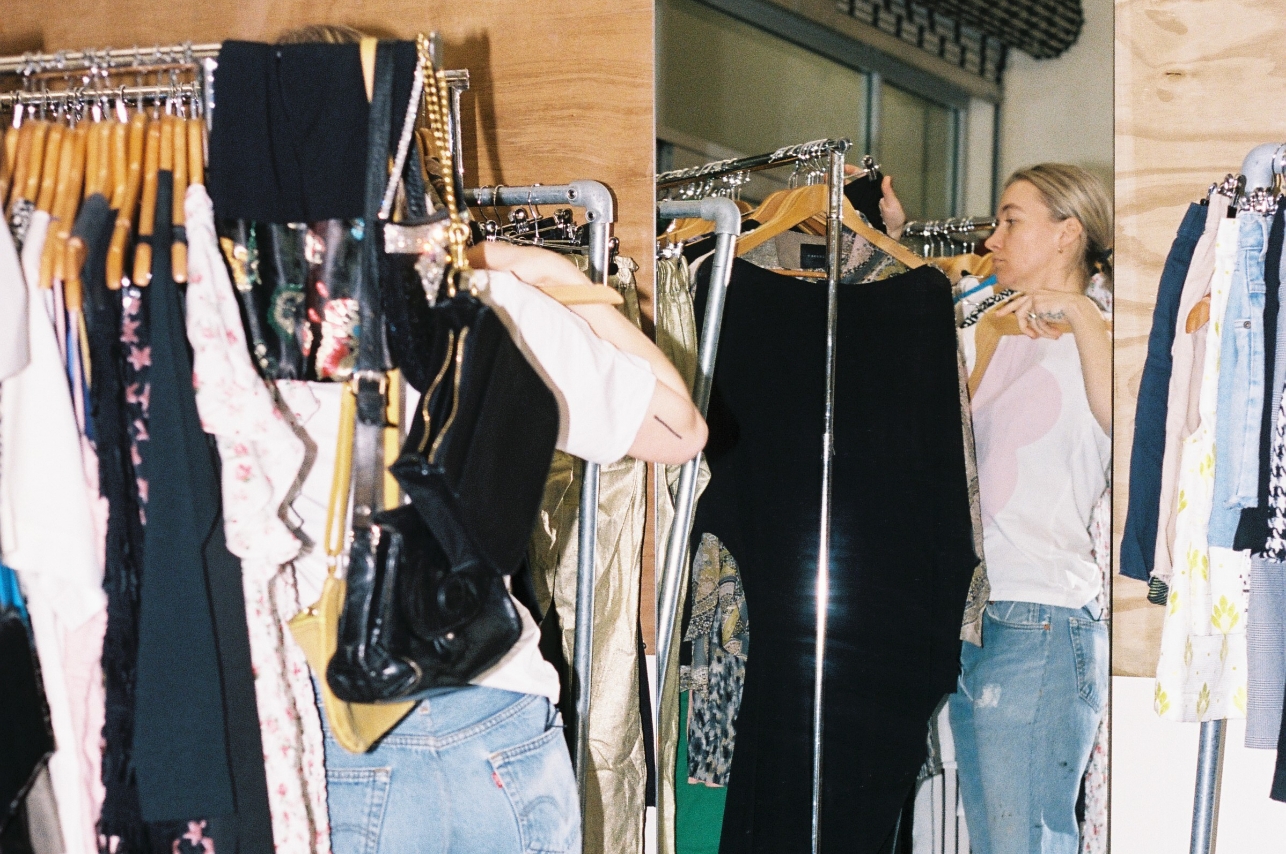
The story of Koha Apparel began with the founder (and a close friend), Charli Cox walking the streets from her apartment to work and noticing all the people in the streets. She had recently moved from the U.K, and Koha Apparel began in 2019, as Cox collected clothing from whoever and wherever she could and would show up to meal services with a clothing rack to give clothing to those in need for free. This role opened up the opportunity for me to write in a way that makes people (everyone) give a shit about the social issues that persist in Aotearoa.
View writing samplesExcerpt from the brands’ 2022 impact report. Theory of change.
Koha Apparel was founded in 2019, and things have gotten a whole lot worse. Over the past three years, politics have become more and more negligent. As a result, communities have had to come together to support those in need, where social care and funding cannot stretch or no longer exists. At times it can be pretty overwhelming. We are focused on what we can do.
Blog post sample.
Clothes are not trash because they are—like housing, a human right
In the beginning, Koha Apparel wasn’t necessarily trying to get into sustainability; there was just this need to clothe people. People on the streets, you know, that you see—constantly. This was back in 2019, and things have gotten a whole lot worse. Over the past three years, we have seen politics become more and more negligent—and the last two years of the Pandemic have really pulled this into focus. And while many have profited from our current system, and some of us are doing alight, some people are not.
What it looks like when we care a little bit
In a time of high child poverty and economic inequality, we’re also now facing complex social and economic issues. We’ve seen money printing and handouts to corporates while individuals were pushed into emergency housing, and people waited in line for food parcels. What I have seen is a lot of people do the work the government should be doing. As a result, communities have had to come together to support those in need, where social care cannot stretch or often to reach those who slip through the cracks in our system.
Doing the work
We work alongside some incredible people and organisations bringing about change, providing the services that they don’t see the government enacting. Organisations such as Orange Sky, Feed the Homeless Auckland, Everybody Eats and Sunday Blessings. Currently, we provide support across fifteen locations throughout Tāmaki Makaurau and more recently, we started showing up at Central Park Apartments in Wellington, a location which is part emergency housing, part student accommodation. There are a lot more people today struggling to make ends meet.
We’ve managed to amass a staggering volume of clothes
Having the clothing you need shouldn’t be a luxury. Yet, clothing poverty remains an issue as increasingly households experience material hardship, faced with choosing whether to pay a utility bill or buy groceries. “Make do and mend”, or so the saying goes, is the reality of many. People with limited resources are not shopping at fast fashion chains, sharing their hauls on TikTok. So while we might not think it, being able to make choices around what we eat and what we wear—we must also recognise it is a privilege to be able to do so.
It is the incomprehensible pace at which clothing is being produced. How it is produced. Fast fashion is a human rights issue. We are utterly disconnected from the manufacturing process. Everyone’s brainwashed and unaware of the brands withholding payment from factories, and the garment workers are underpaid and abused. We’re exploiting people to stay on trend.
Reducing pace and rethinking our systems
Consumerism has been marketed to us as a way of life—that your life could be better, you could be more attractive if you bought this and that. It is hard to change culture and our way of thinking–but we must. It’s true that we play an important role in shaping fashion, that we, the market forces drive trends and innovation—but we need the industry to act and address the systemic issues that persist. They created the issues, the pollution, the waste, and the exploitative labour practices and are uniquely placed to solve these issues. That said, if we are in a position to make choices around fashion, we can also choose what systems we buy into.
By helping one another, we’ll help our community and maybe our country
At times it can be pretty overwhelming, the scale of what is happening in the world. We are, as are many others, focused on what we can do here. We aim to drive change through culture, working alongside many other diverse communities and organisations, together with volunteers—people who care about their communities. And there are many ways to get involved, whether sharing our social media posts, amplifying our message, or donating clothing. Everything encourages collective action.
This month, we passively participate in Second Hand September, empowering re-use culture and encouraging people to question their relationship with consumerism every month. Not just September. Also, we are pleased to announce that after a 6-month hiatus, we will begin accepting clothing donations as of October 1. We encourage you to drop off any clothing that is no longer useful to you at our Mount Albert Hub. You can read our donation criteria here. And if you would like to organise a collection at your workspace, please email Charli for more details. Together, we’re all invested in creating positive change how we can. Now.
Chai Guy
Creative Copy // Manifesto
Dean Sproull is the owner-operator behind Chai Guy. Sproull began producing chai and single-origin chocolate when it was politically subversive to cook without meat or buy food from bulk bins. The brief was to develop an identity that would speak directly to a younger audience who consider the whole foods approach today revelatory and that celebrates Sproull’s eclecticism and values of ethics, quality and craft.
View writing samplesWebsite copy sample.
When we can’t find it, we create it. Established in Aotearoa, Chai Guy is the result of founder Dean Sproull, who strived to create something that considers that life is better when we find balance between nature and modernity. Therefore, products are made through the union of both. Organic, biodynamics and ethics are all important, which goes beyond the definition of pesticide-free food, connecting people, communities, and farmers with Mother Earth. Welcome.
Have a look around. Our products are ready for you to interpret and discover. Each creation engages with the methods, origins and culture, revealing a truthful product that balances the physical and spiritual. And thank you for your support towards progressing the worldwide organic, sustainable food movement. You’re simultaneously supporting your health and the health of our planetary health.
Product description sample #1.
Page title: Mint Dark Chocolate 70% Raw Ecuador.
Description: An invitation to health and happiness, this bar, embedded with the aroma of a rambling weed, provides a journey of flavours for the palette to discover. A 70% pure, dark, raw organic cacao bean from Ecuador presents notes of caramel, stone fruits and mango infused with the clarity of mint.
Product description sample #2.
Page title: Orange Dark Chocolate 70% Raw Ecuador.
Description: Subtlety and clarity. A 70% pure, raw organic cacao bean from Ecuador with the extraction of summer past. Fruity-flavoured cacao presents notes of mango, berry, and dried fruit nuanced with undertones of citrus and rainforest regeneration round out the experience.
Product description sample #3.
Page title: Flaked Salt Chocolate 60% Ecuador.
Description: A single origin 60% cacao bean from Ecuador, stone-ground, and evaporated coconut flower blossom nectar. The inclusion of New Zealand flaked salt reveals hidden layers—notes of mango, berries, dried fruit, liquorice, and caramel. And salt, a fragile aftertaste. Balance the physical and spiritual.
ASC Architects
Creative Copy & Tone of Voice
As part of their own refresh, I collaborated with my dear friend and Architect Amandine Paniagua to develop the studio’s tone of voice, including tailored case studies, profiles and general website copy.
View writing samplesManifesto.
ASC Architects strives for an architecture that meets diverse community needs, and supports social cohesion to positively intensify our experience of the world. Buildings have an immediate responsibility to culture and society, and our mission as architects is to develop alongside the complexities of an ever-changing world.
If we are to make an impact beyond design, architecture must be prized for its service, looking forward at contemporary ways of enhancing modern life. Our design expertise is underpinned by collaborative leaders who span sectors and disciplines to deliver practical and purposeful design—each project—the result of dialogue between the client, design team and site.
Presenting our collaborators with an honest view of our ideas and architecture—these ideas become the narrative for a building to relate to the contemporary conditions in which it exists. With an intent focus on innovative building techniques and design solutions, the practice seeks to proactively position its work at this intersection of utility and function with respect for the inherent and unique complexities of each project.
Website copy sample #1.
ASC Architects is a multi-award-winning architecture and design studio based in Auckland. The work of the practice explores vital ideas of landscape, connections and materiality, seeking to enhance and challenge the experience of our built environment. We have undertaken and realised work across a diverse range of sectors, from private residential to large-scale commercial and community projects recognised by various awards. Collaborating with designers, engineers, and manufacturers, we take a humanistic approach to achieve client-specific outcomes that are responsive to context, economic, technical, and environmental challenges.
Website copy sample #2.
Working with sensitivity and restraint, the studio’s residential portfolio is diverse, ranging from the delivery of community housing to the development of more complex apartment buildings. Our built environments shape every aspect of our lives, and our work is to improve and enhance modern life. Projects such as Parnell House, for which we received the House of the Year Silver Award in 2015, and the recently completed Risland Meadowbank offer urban sanctuaries with a heightened consideration for the changing family unit. The studio was engaged in master planning for the Kew Residential Services site, which resulted in the studio designing the award-winning Lakeside West apartments. Building on an existing portfolio of medium-density residential projects, the studio is engaged with Housing New Zealand, signalling ambitions for public housing. To serve such initiatives, the studio undertook the renewal of Talbot Park Community Housing, a multi-award-winning project. Subsequent redevelopment of Valiant Street involved replacing 17 existing houses with 34 modern single and duplex units within the same site providing quality accessible community housing. The studio continues to accept residential projects of both public and private nature.
Website copy sample #3.
Acknowledging the site’s former life as the DYC Vinegar factory, Vinegar Lane and the Cider building is an urban mixed-use development project spanning 13,200 square metres. Conceived as part of a larger master plan concerned with the regeneration of a city block in Ponsonby Auckland, Countdown Ponsonby was the first retailer to open, the modernist supermarket encompasses a 4000 square metre space with an additional 8,000 square metres of office across three floors and four levels of car parks.
By resisting the status quo of all glass office blocks clad in raw concrete, quartz zinc and evergreen glass, the materiality allowed this project to negotiate between the historic neighbourhood comprised of terraced houses while referencing the sites’ industrial origins.
Working with sensitivity and restraint, the $120 million precinct contains a carefully planned mix of 31 commercial and residential buildings with clearly defined urban design expectations aligned with the Auckland plan. Built upon fee simple titles, this project offers an example of ways to repurpose buildings for contemporary living, achieving density while retaining the quality of our built heritage.
Pana Organic
Creative Copy
Pana Barbounis founded Pana Organic in Melbourne, Australia, when vegan chocolate was only found on the shelves of self-proclaimed health food stores. I worked with the Melbourne-based team from late 2019-2021 to re-establish a tone of voice that found a balance between sentimentality and being fluffy yet still producing effective and measurable results for both the brand and retailers.
View writing samplesSocial media samples.
Who’s had the latest? Blood Orange Dark Chocolate 🙋 Don't forget to tag us, and we'll share our favourites on our Stories!
NEW, NEW NEW!! Macadamia & Mango, where have you been all our lives? 😋 This bar is 45g of our original fudgy, dark chocolate with chunky macadamia and mango pieces.
Go wild! Available from Independent Grocers across Australia 🥭
Same, but BIGGER! Your fave Spread but upsized to 400g! You'll find these Hazelnut & Chocolate jars in independent grocers across Australia.
Because it is just too exciting not to go on about!! Macadamia & Mango and Fruit & Nut—our newest flavours have arrived 😆
Weekend plans? Now you do! Dig out your beater (or borrow one from a friend) and make some super creamy, vegan, luscious mousse! Recipe below.
NEW and different. Our original dark range is 45 grams of soft, fudgy, moreish chocolate versus Seventy % whole 80 grams of snappy, super-smooth and bittersweet heaven! Both 100% vegan, both gluten-free, both deliciously organic! 🙌🏾
Take a trip down memory lane. Coco Crunch, 100% organic, 100% vegan. Always 🖤
If you love your chocolate on the darker side, our newest Seventy % will 100% be your fave! Super smooth, antioxidant brain food and delicious all at the same time. Who’s tried? 🙋🏼♀️ Can't even begin to explain how much organic deliciousness is heading your way!! Something unexpected. Can you guess the flavour?
We’re now available at your local 7-Eleven 🥳 (well, our deliciously scoopable Frozen Dessert tubs are!). To celebrate, we are launching an exclusive new flavour – Hazelnut Chocolate Ripple. Yes, you heard us correctly: our delicious Hazelnut Chocolate Spread rippling in fudgy waves of goodness through a smooth coconut base. De-li-cious!
Little Bird Organics
Creative Copy
Little Bird Organics was born out of a desire to nourish bodies with organic whole foods, to elevate vegan food, and with a deep belief in the life force of plants. Continuing a wonderful partnership and working alongside the founder, Megan May, I developed the brand voice and infused it with emojis – which included their website refresh, product descriptions, email and social copy!
View writing samplesWebsite copy sample #1.
Our nutritionist-formulated cleanses are developed to flood your body with potent plant nutrition — temporarily eliminating common inflammation triggers and giving your body a break from the stress of digesting dense foods. We use only the freshest, in-season local organic produce. Our juices are cold-pressed and non-pasteurised so you get all those antioxidant-rich nutrients and enzymes.
More than a detox, our cleanses are an opportunity to reinforce our immune system and energise the mind and body. 1, 3, and 5-day cleanse plans are available, suitable for all levels. Not ready to commit to a full-day cleanse yet? Ease your body into cleansing with one of our cold-pressed juice boxes.
Website copy sample #2.
Our cold-pressed juices, nut milk, tonics, and cold brew coffee are handmade fresh daily by our Squeezery team. We make fresh juice. It’s made from organic and local produce — cold-pressed and unpasteurised, so you get all those antioxidant-rich nutrients and enzymes. We soak raw, organic nuts overnight — activated for optimal nutrition and gently pressed in the morning, adding superfoods to create the most delicious, vibrant nut milk ever! We also make cold brew which has a much lower acidity than espresso, then bottle it so you can drink your focus. Everything tastes great. And it will make you feel really good too. You’ll find a rotating selection at our Summer St cafe. The full menu is listed below.
Product description sample #1.
Page title: Mixed Berry Cheesecake
Description: Fresh, fruity coconut; decadent, this cheesecake features blended coconut and cashews, make for the creamiest cheesecake filling that has just the right amount of sweetness and tang. Think berry picking and soft serve. And with all the fêtes on the calendar these holidays, delight you and your guests with a lighter, fresher dessert to offset the richness of holiday meals. Ideal for celebrations of all occasions and sizes (you can freeze leftover slices) — this cake measures 23cm in diameter and feeds 14-16 people.
Product description sample #2.
Page title: Vegan Raspberry Chocolate Donuts
Description: Our vegan donuts are made fresh for deliveries on Wednesdays and Fridays, fluffy, and encased in a chocolate outer with wonderfully tart freeze-dried raspberry pieces. Perfection. These chocolate donuts take advantage of almond and flax flours—gluten-free and paleo-friendly, providing plant-based fats, protein and life-giving nutrients combined with raw cacao for an antioxidant hit. If you know, you know (and you’re back ordering more), these are the best vegan donuts in Auckland. Ideal for sharing (or not), we won’t judge. Serve as is or warm them up in your oven—they’re perfect either way.